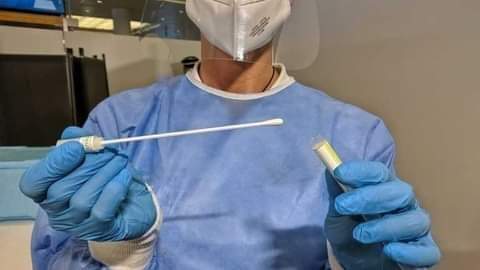
Authorities in China have reportedly made anal COVID-19 swabs compulsory for all foreign travelers arriving in the country.
The government has claimed that such tests provide a higher degree of accuracy than other screening methods for the virus, the Times UK reported.
As part of the new travel requirement, there will be testing hubs in Beijing and Shanghai airports, the outlet reported.
Li Tongzeng, a respiratory disease medic, said that the anal swabs are better because virus traces stay longer in fecal samples than they do in the nose or throat, state media reported.
“If we add anal swab testing, it can raise our rate of identifying infected patients,” Li Tongzeng told the Washington Post in January.
The move follows calls from the US and Japan to stop performing the “undignified” tests on their citizens when they enter the country because the swabs cause mental anguish.
On Tuesday, China apologized and agreed to stop using anal swabs on American diplomats after some members of US President Joe Biden’s administration complained about the method.
“The State Department never agreed to this kind of testing and protested directly to the Ministry of Foreign Affairs when we learned that some staff were subject to it,” a spokesperson said, adding that Beijing told them the testing was an “error” and diplomats were supposed to be exempt.
The Japanese Government later spoke out over the “psychological pain” their citizens were experiencing from the tests.
“Some Japanese reported to our embassy in China that they received anal swab tests, which caused a great psychological pain,” Katsunobu Kato, Japan’s chief cabinet secretary, told a press conference.
Chinese Foreign Ministry spokesman, Wang Wenbin, however, defended the screenings as “science-based”
The tests are “in accordance with the changes in the epidemic situation as well as relevant laws and regulations,” he said.
The test, which takes around 10 seconds, involves a saline-soaked cotton swab being inserted three to five centimetres into the rectum and rotated several times. When the swab is then removed it will be securely placed in a test container before the sample is then tested for traces of the virus.













